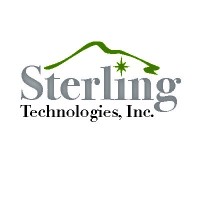
Sterling Technologies Inc
Based in Morrisville, Vermont along the spine of the Green Mountains, STI is equipped to work with titanium, ceramics, and other challenging and demanding materials. STI develops innovative processes that produce consistent and predictable results for our customers. We have state of the art 5 axis machine equipment, inspection equipment, clean room services, EDM, and surface grinding, we take pride in tackling the more difficult machine work that other shops would turn away. Looking ahead, STI aims to continue to develop long-term relationships while supporting the manufacturing requirements of our client partners. STI is committed to becoming a recognized and trusted Supply Chain Partner to various industries in the Vermont Way which is to under-promise and over-deliver whenever possible. If you would like to learn more about STI, please visit our website for more information. www.sterlingtechnologiesvt.com






